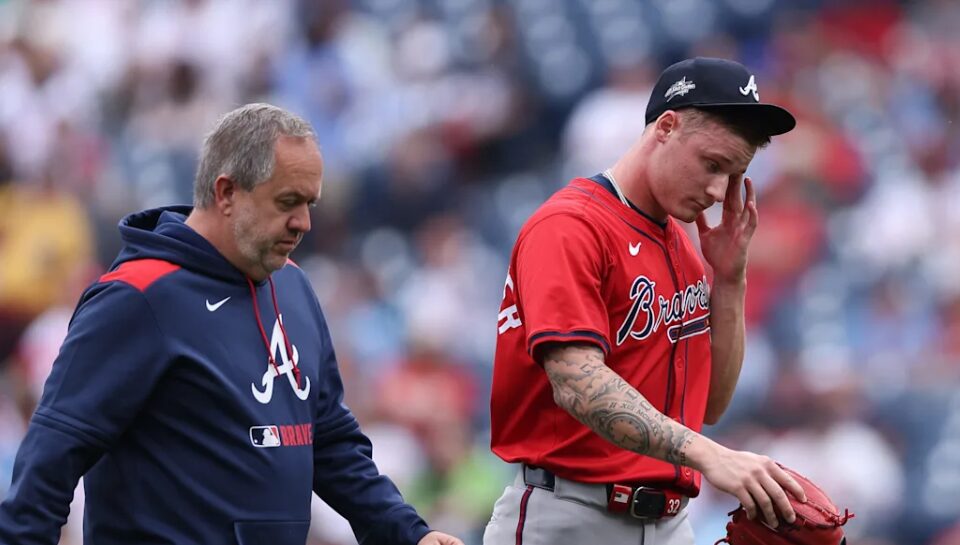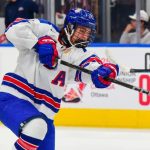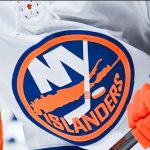Morning News: Atlanta Braves Hit with Major Roster Problems
On Thursday night in New York, Mets starter Griffin Canning awkwardly stumbled off the mound during the third inning of his outing against the Braves. Despite the early exit, New York’s struggling bullpen stepped up, delivering 6 1/3 scoreless innings to complete a 4-0 shutout of Atlanta.
Just 24 hours later in Atlanta, the Phillies faced a lengthy 139-minute rain delay that forced them to scratch rookie Mick Abel from his scheduled start. Instead, Philadelphia turned to the bullpen, and four relievers combined to blank the Braves on nine hits in a dominant 13-0 rout—arguably one of Atlanta’s most humiliating losses in recent memory.
These weren’t aces like Jacob deGrom or Zack Wheeler on the mound. It was a collection of eight bullpen arms that once again exposed the Braves’ faltering offense.
At this point, it’s becoming hard to deny a painful truth: this Atlanta Braves team just isn’t very good.
You can point fingers at manager Brian Snitker all you want, but the root of the problem starts at the top—with owner Terry McGuirk. The Braves’ payroll has taken a step back this year, dropping from \$238 million in 2024 to just under \$216 million. That reduction clearly impacted general manager Alex Anthopoulos, who was handed a tighter budget and hasn’t been able to build a truly competitive roster. At the same time, a handful of players appear to be coasting through the season.
This team is loaded with players who fall into one of three categories: Quad-A players (guys who shine in Triple-A but can’t stick in the big leagues), fringe roster fillers better suited as the 26th man, or players who frankly don’t belong in the majors at all.
Take the pitching staff, for example. Friday night’s starter, Bryce Elder, is barely hanging onto his spot in the rotation—if we’re being generous. Through 13 starts this season, Elder owns a 5.82 ERA. In June alone, his ERA sits at a brutal 8.25. Dating back to the beginning of 2024, he’s posted a 5.37 ERA, and over his last 37 starts—since his early 2023 All-Star breakout—he’s sitting at 5.50. That’s not just a slump; that’s a long-term problem.
Yes, Bryce Elder can occasionally turn in solid outings—he posted a 3.10 ERA over five starts before June—but his stuff is average at best. Opposing teams have clearly adjusted to him, and he hasn’t made the necessary counter-adjustments to become a reliable MLB starter.
Then there’s 20-year-old Didier Fuentes, a promising prospect who has already made two big-league starts. But he has no business being in the majors yet. The Braves rushed him to Atlanta, repeating a mistake they should have learned from by now—fast-tracking young arms rarely leads to success.
Injuries have played a role, no doubt. No. 2 starter Reynaldo López went down with shoulder issues in the season’s opening week. No. 4 starter AJ Smith-Shawver suffered an elbow injury in May. And just last week, Chris Sale fractured a rib diving for a ball. The rotation has taken a beating.
But general manager Alex Anthopoulos let Max Fried and Charlie Morton walk after they combined for 19 wins and 339.2 innings last year—and never adequately replaced them. Instead, he leaned on Grant Holmes, who’s been serviceable but unproven over a full season, and Smith-Shawver, who couldn’t stay healthy for more than six weeks. No veteran arms were added, likely due to a reduced payroll.
The bullpen has become a revolving door for pitchers discarded by other teams. Michael Peterson and Dylan Dodd, while possibly having long-term upside, are clearly Quad-A players. Anthopoulos also failed to bring in a quality replacement when Joe Jiménez went down with a knee injury. Combined with Raisel Iglesias posting an ERA nearly four runs higher than last season, the bullpen has become a high-stress liability late in games.
Offensively, the issues are just as glaring. Starting shortstop Nick Allen is solid defensively but contributes little at the plate. He’s more of a utility infielder forced into a starting role because Dansby Swanson was never properly replaced. Luke Williams is the definition of a Quad-A player, hitting just .159 over three seasons with the Braves.
What seemed like a savvy spring signing—Alex Verdugo for $1.5 million—has turned sour. With Jurickson Profar suspended, Verdugo got regular playing time and has failed to deliver. Once a decent bat averaging 13 home runs and 63 RBIs over four seasons, he now shows only warning track power and hasn’t hit a single home run. He wouldn’t even qualify as a reliable bench outfielder at this point.
His platoon partner in left, Eli White, works hard but is best suited as the 26th man on a roster. The more he plays, the more his limitations show. Stuart Fairchild? Another Quad-A guy. He’s hitting .205 this season and is a career .223 hitter in the majors.
And then there’s Michael Harris. His struggles have reached a breaking point. He hasn’t drawn a walk in his last 33 games. This month, he’s hitting just .148 with a miserable .165 on-base percentage. Yes, he’s still solid defensively, but he’s become an automatic out. A stint in Triple-A seems necessary to reset his approach. The problem? There’s no one worth calling up. Jarred Kelenic, who was demoted, is barely hitting over .200 in Triple-A and hasn’t earned another shot.
When you tally it up, the Braves are trotting out five Quad-A players (Elder, Peterson, Dodd, Williams, Fairchild), two players who should be the 26th man on a roster (Allen, White), one who was promoted too early (Fuentes), and one who needs to be sent back down (Harris). That’s nine of 26 players who are, frankly, dragging the roster into mediocrity.
Responsibility falls on both Terry McGuirk and Anthopoulos. Maybe the owner will realize, while relaxing in his green jacket at Augusta National this offseason, that trimming payroll leads to fewer wins—and eventually, fewer fans. The choice to reduce spending is already backfiring.
Yes, injuries and underperformance from key players like Ozzie Albies have made things worse. But it’s Anthopoulos’ job to respond to those challenges—and so far, he hasn’t. And at this point, it may already be too late.
Profar is expected back next week, and perhaps Anthopoulos is hoping he’ll provide a spark. But don’t count on it.
The harsh reality? This roster just isn’t very good. That’s a tough truth for Braves fans to accept, but it’s clear. Unless a miracle second-half turnaround materializes, Atlanta is tracking for a 74-88 finish—and after these last two games, even that might be optimistic.



No Comment! Be the first one.